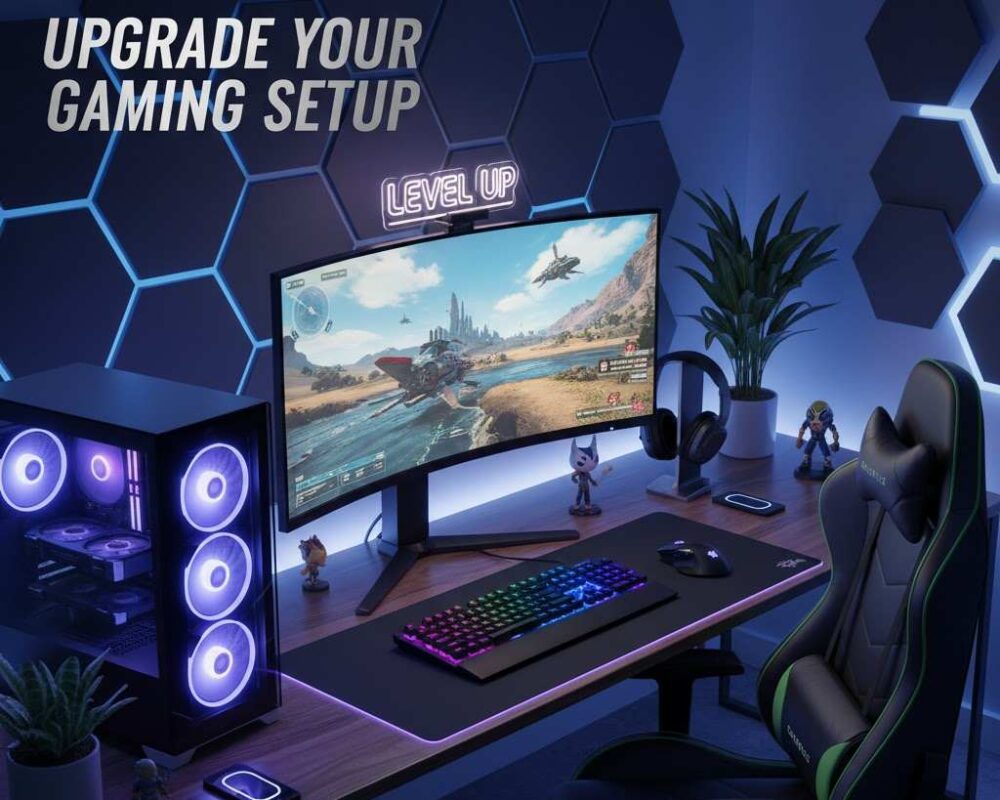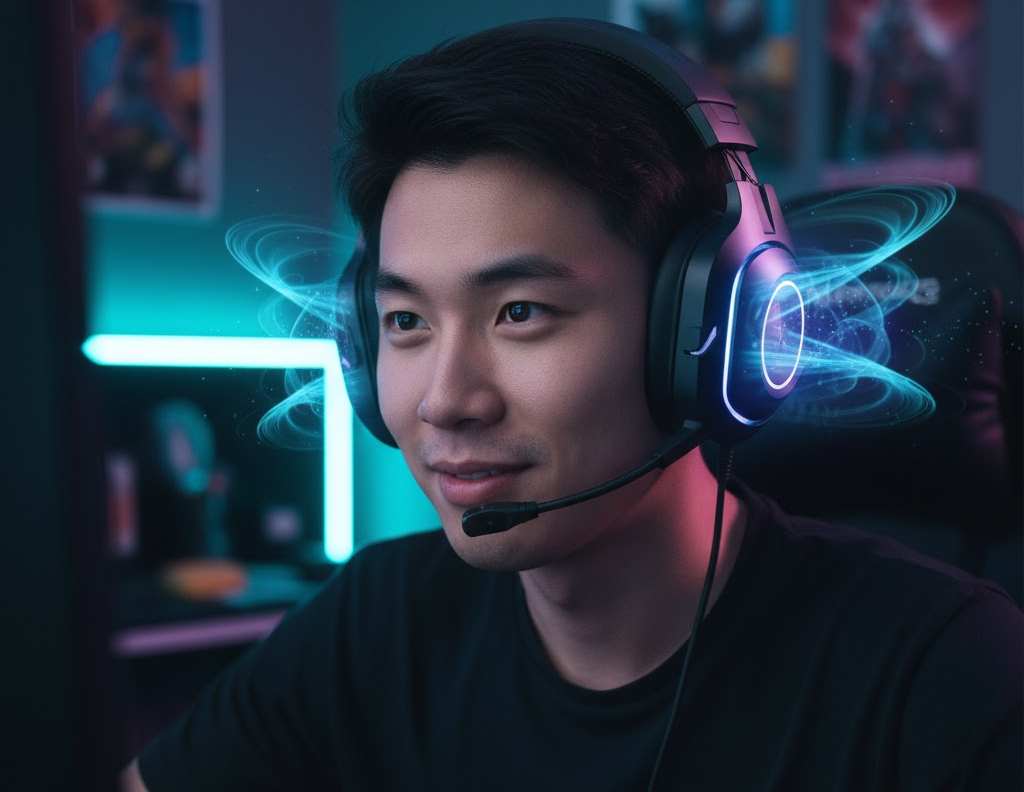6 Exciting Ways to Enhance Your Online Gaming Experience

Online gaming is one of the most dynamic and engaging forms of entertainment today. But even the best games can start to feel repetitive when every session plays out the same way.
Boot up. Same game. Same routine. Less excitement.
This is what many players refer to as a “gaming rut.” It’s a common experience—but it doesn’t have to be permanent. By making a few intentional adjustments to your gaming approach, you can rediscover the thrill that initially drew you in.
Below are six proven strategies, backed by expert insight and practical advice, to help you make your online gaming experience exciting again.
1. Branch Out Into New Genres
Many gamers stick to one category, such as shooters, MMOs, MOBAs, or racing games. While that comfort zone can feel safe, it can also lead to boredom. Trying something new is one of the most effective ways to bring back excitement.
“Gaming works best when it’s a playground for curiosity.” — Tom Chatfield, Fun Inc.
Why This Works
- New cognitive challenges: Different genres require new skills and ways of thinking.
- Skill transfer: A strategic mindset developed in RTS games can make you a better FPS player.
- Novelty effect: Your brain craves new mechanics and patterns, which makes gaming more stimulating.
How to Start
| Step | Action | Example |
|---|---|---|
| Choose one new genre | Step away from your usual category | If you play FPS, try a story-driven adventure |
| Use indie games | Indie titles often experiment with mechanics | Papers, Please, The Stanley Parable, Hades |
| Play short sessions | Low pressure, more fun | 30–60 minute trial sessions |
| Reflect on the experience | Identify what surprised or engaged you | Did it challenge your usual skills? |
The goal is not to master the new genre immediately but to rediscover the feeling of exploration and discovery.
2. Upgrade Your Gaming Setup

A poor gaming environment can quietly erode your enjoyment, regardless of how good the game is. You don’t need expensive hardware to make a difference—targeted upgrades often offer the best results.
“Hardware comfort directly impacts performance and mental focus.” — Gaming Gear Review Journal.
Key Areas to Upgrade
| Component | Why It Matters | Upgrade Tip |
|---|---|---|
| Monitor | Improves visual clarity and reaction time | Consider 120Hz–144Hz displays |
| Headset | Better audio means better awareness | Choose comfort and sound quality |
| Chair | Comfort affects posture and endurance | Look for proper lumbar support |
| Lighting | Reduces eye strain and fatigue | Use soft or bias lighting |
| Mouse and keyboard | Faster input and accuracy | Consider ergonomic or mechanical options |
“I upgraded to a decent gaming headset last year, and I’d been missing half the audio cues in my games. Footsteps I couldn’t hear before suddenly became crystal clear. It’s like getting glasses for your ears.”
If your budget is limited, focus on monitor and audio upgrades first, as they usually have the most significant impact on your experience.
3. Keep Your System Updated
Outdated drivers and dusty components can cause more issues than you might realize—lag, overheating, crashes, and frustrating performance drops. Regular maintenance is one of the simplest ways to make games feel smoother and more responsive.
Why Maintenance Matters
- New drivers often increase game performance
- Software updates fix hidden bugs and glitches
- Clean systems run cooler and last longer
Maintenance Checklist
| Task | Frequency | Tools |
|---|---|---|
| Update GPU and audio drivers | Monthly | NVIDIA/AMD software |
| Clean dust from PC | Every 2–3 months | Compressed air |
| Update game launchers | When prompted | Steam, Epic Games |
| Check temperature and performance | Monthly | HWMonitor, MSI Afterburner |
“Regular maintenance extends the life of your hardware and boosts in-game performance.” — PC Gamer Tech Desk
Setting aside a single 30-minute maintenance session each month can keep your system running at its best.
4. Find Your Gaming Tribe
Gaming alone is fine, but playing with a community can completely change the experience. A shared hobby builds connection, excitement, and often leads to better gameplay.
“Gaming has been a great way to get to know people. That’s part of what I love about games, that they are social.” — Rich Sommer.
Benefits of Joining a Community
- Learn new strategies and improve faster
- Build friendships and shared experiences
- Stay motivated to keep playing
- Discover new events, modes, and challenges
Where to Find Your Tribe
| Platform | What It Offers | How to Start |
|---|---|---|
| Discord | Real-time voice and text chat | Join servers for your favorite games |
| Strategy discussions and tips | Subscribe to game-specific subreddits | |
| Local events | LAN parties and gaming cafes | Search for local meetups or tournaments |
| Create your own | Build your own group | Host weekly sessions with friends |
Communities are where the real magic happens. Shared experiences turn ordinary sessions into lasting memories.
5. Adopt the Competitive Side
You don’t have to be a professional esports player to enjoy competitive gaming. Tournaments, ranked ladders, or local events can bring back the adrenaline rush that casual play sometimes lacks.
“Difficulty is the point, not the problem.” — Tom Chatfield.
Why Competition Helps
- Forces you to think strategically under pressure
- Encourages skill growth through real challenges
- Makes wins and losses more meaningful
- Breaks the monotony of casual grinding
How to Get Started
| Option | Description | Benefits |
|---|---|---|
| In-game events | Seasonal ranked matches or challenges | Easy entry, structured |
| Community tournaments | Hosted on Discord or Reddit | Beginner-friendly |
| Local competitions | LAN or café events | In-person interaction |
| Personal challenges | Record and review your matches | Self-improvement |
Competition adds intensity to your sessions and creates new milestones to chase.
6. Mix Up Your Game Modes

Most games offer way more variety than players ever explore. Many gamers stick to a single mode—often the most popular one—without realizing the game’s actual depth. By stepping outside your usual routine and experimenting with alternative modes, you can discover fresh challenges and perspectives.
Take American online poker as an example. If you’re only playing Texas Hold’em, you’re missing out on Omaha, Seven-Card Stud, and dozens of other variants that challenge you in entirely different ways. Each mode demands new strategies, decision-making patterns, and risk management approaches. What feels like a familiar game suddenly becomes something new and engaging again.
This concept applies to virtually every genre. That “experimental” mode in your favorite FPS? The quirky limited-time event in your MOBA? Is the creative mode in your sandbox game? Each of these can reshape the way you experience familiar mechanics.
Why Game Mode Variety Matters
- Forces you to adapt your strategy
- Keeps your brain engaged
- Reveals new mechanics and features
- Prevents routine from turning into boredom
Practical Examples
| Game Type | Default Mode | Alternative Mode |
|---|---|---|
| Poker | Texas Hold’em | Omaha, Seven-Card Stud |
| FPS | Team Deathmatch | Gun Game, Hardcore, Capture the Flag |
| MOBA | Ranked | ARAM, rotating special modes |
| Sandbox | Standard play | Mods, creative mode, community maps |
Trying a different mode for even 20 minutes can feel like playing a completely new game.
Recommended Books
- Jane McGonigal breaks Reality
- Fun Inc. by Tom Chatfield
- Designing Virtual Worlds by Richard Bartle
- Game Design Workshop by Tracy Fullerton
These works examine the impact of gaming on motivation, skill development, and social connection.
Disclaimer
This article is for informational and entertainment purposes only. It is not a substitute for professional advice or guidance. If gaming begins to interfere with your daily life, responsibilities, or mental health, consider seeking support from qualified professionals.
Enhancing your gaming experience should add to your life, not take over it.
